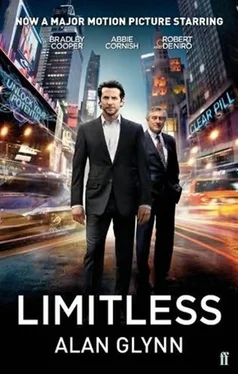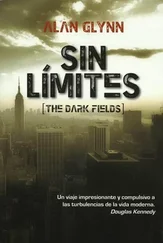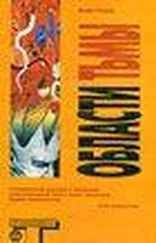For a while, I envisaged club dates, European tours, rain showers of record-executive business cards, but it didn’t take me long to realize something crucial: I was good, but I wasn’t that good. I could play ‘Stardust’ and ‘It Never Entered My Mind’, passably, and would probably be able to play both books of ‘The Well-Tempered Clavier’ if I worked at it non-stop for the next 500 hours – but the question was, did I really want to spend the next five hundred hours practising the piano?
For that matter, I suppose, just what did I want to do?
*
It was around this time, therefore, that I started feeling restless. I came to realize that if I was going to go on taking MDT, I would need some kind of focus and structure in my life, and that flitting from one interest to another wasn’t going to be enough. I needed a plan, a credible course of action – I needed to be working.
I also had a more immediate question to deal with. What was I going to do with the 450 or so tablets? Some of them could be sold at $500 a piece, so the obvious thing I considered doing was, well… dealing them – and dealing them myself. But how, exactly, was I going to do this? Hang out on the street corner? Hawk them around nightclubs? Try and shift them in bulk to some scary guy with a gun in a hotel room? There were too many complications, and too many variables. Besides, it didn’t take me long to see that even if I did get full price for even half of the tablets, $120,000 at the end of the day was nothing compared to the potential gains there could be from just ingesting them, and using them creatively, judiciously. I had more or less finished Turning On , for instance, and could easily knock off others in a series like that.
So what else could I do?
I sketched out possible projects. One idea was to withdraw Turning On from Kerr & Dexter and develop it into a full-length study – expand the text and cut back on the illustrations. Another idea was to do a screenplay based on the life of Aldous Huxley, focusing on his days in LA. I considered doing a book on the economic and social history of some commodity, cigars maybe, or opium, or saffron, or chocolate, or silk, something that could be tied in, later on, to a lavishly produced TV documentary series. I thought about putting out a magazine, or starting a translation agency, or setting up a film production company, or devising a new Internet-based service… or – I don’t know – inventing and patenting an electronic gadget that would become indispensable, achieve world-wide brand-recognition in six months to a year and establish my place in the great twentieth-century pantheon of eponyms – Kodak, Ford, Hoover, Bayer… Spinola.
But the drawback with all of these ideas was that they were either too unoriginal or too quixotic. They’d each take a lot of time and capital to set up, and there was no guarantee in the end – regardless of how fucking smart I was – that any of them would work, or have enough appeal to be marketable. So the next thing I considered was the possibility of going back to school to do a post-graduate course. With a prudent use of MDT I could accumulate credits fairly quickly and shortcut my way to a belated career in… something, but the problem was – in what ? Law? Architecture? Dentistry? Some branch of science? Even listing these options was enough to take me back twenty years and start my head spinning. And did I really want to get into all of that shit again – exams, term papers, dealing with professors? The mere thought of it was enough to make me throw up.
So what, then – I asked myself – was I left with?
Well, what do you think? Making money.
Making money… how ?
By making telephone calls.
Hhn?
The stock market, stupid .
IT SEEMED LIKE THE obvious thing. I’d been reading the financial sections every day in the newspapers, having those chats with the old man, even spinning elaborate stories to strange women about being an investment analyst, so the next step was surely to get involved for real, and in some practical way – by day-trading on my PC at home maybe, in options, futures, derivatives, whatever. It would be better than any job I could find, and of course playing the markets had the added attraction of being the new rock-and-roll. The only problem was that I didn’t have a clear enough understanding of what options, futures and derivatives actually were – not enough, in any case, to start trading in them. I could bluff my way through a conversation, sure, but that wasn’t going to be much use when it came to putting some real money on the table.
What I needed was an hour or two with someone who could explain in detail how the markets worked and then show me the mechanics of day-trading. I thought of Kevin Doyle, that guy I’d had breakfast with a couple of Sundays back, the one who worked for Van Loon & Associates, but as I remembered he was fairly intense and the kind of Wall Street suit who’d probably scoff at the notion of day-trading on a PC. So I phoned around some business journalists I knew and put it out that I was doing a section for a new K & D book on the whole day-trading phenomenon. I got a call back from one of them saying he could set up an interview for me with a friend of his who’d been day-trading online for the past year and would be more than willing to talk about it. The arrangement was that I’d go to this person’s apartment, chat, take notes and watch him in action.
The guy’s name was Bob Holland and he lived on East Thirty-third and Second. He greeted me in boxer shorts, led me down a hallway into his living-room and asked if I wanted a hit of espresso. The room was dominated by a long, mahogany table that had three computer terminals on it and a Gaggia espresso machine. There was an exercise bike between the far end of the table and the wall. Bob Holland was about forty-five, lean and wiry, and had thinning grey hair. He stood in front of one of the terminals, staring at the screen.
‘This is the lair of the beast, Eddie, so you’ll have to, er…’ He pulled distractedly at his boxers with one hand, simultaneously keying something in to the computer with the other, ‘… you’ll have to excuse the dress-code.’ Still distracted, he pointed to the Gaggia and half whispered the word espresso .
I busied myself with the coffee machine and looked around as I waited for him to speak again. Apart from the table and the immediate space around it, the room had a neglected feel. It was dark and musty and looked like it hadn’t been vacuumed in a while. The furniture and décor, as well, were more than a little fussy – too fussy, I thought, for this Spartan and focused warrior of the Nasdaq.
I figured that he’d probably been divorced in the last three to six months.
Suddenly, after a long bout of intense concentration and intermittent key-stroking – during which I sipped my espresso – Holland started speaking. ‘Many people believe that when you buy a share of stock you are buying a proportional share in a business.’ He spoke slowly, as though delivering a lecture, but continued to stare at the screen. ‘Consequently, to figure out how much any proportional share is worth, you have to determine how much the business is worth. It’s known as “fundamental” analysis, and it’s where you look at the company’s basic financial health – growth potential, projected earnings, cash flow, that kind of thing.’ He paused, stroked a few more keys and then went on. ‘Others look at the numbers only, with almost no regard for the underlying business or its current valuation. These are quantitative analysts, or “quants”. Number crunchers. They consider judgements about things like management expertise and market potential to be too subjective. They buy and sell on a purely quantitative basis, using sophisticated algorithms to find minute price discrepancies in the markets.’ He glanced at me briefly. ‘Yeah?’
Читать дальше












